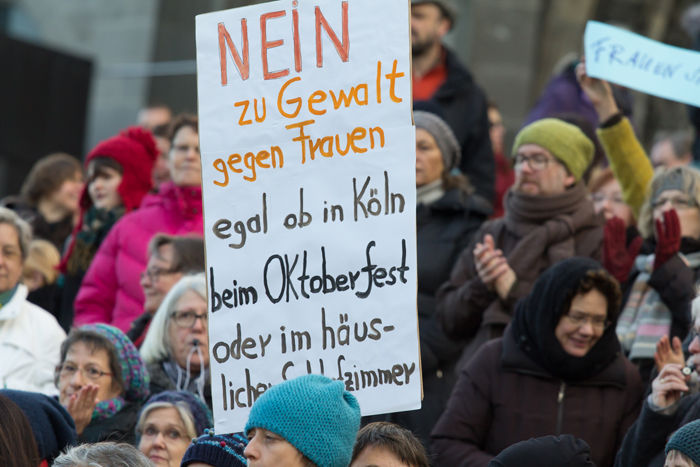In aftermath of Cologne attacks, Germany faces even bigger crisis
January 13, 2016
At the New Year’s Eve celebration in Cologne, Germany, at least 200 women were reportedly sexually assaulted, allegedly by men from Arab and North African ethnicities.
Since then, Germany has reacted in many ways, none of which have yet found a solution, or a means to finding the perpetrators.
The core problem with this incident is that Germany is undergoing a massive cultural integration by refugees from the Middle East and the attacks have drastically changed views of the new migrants among a large portion of the population.
Although what happened on that day is truly horrifying, the people of Germany, and most importantly its leaders, cannot resort to blaming an entire ethnicity for such a problem.
Germany is one of the Western European countries that agreed to open its borders to fleeing refugees from Syria and other war-torn Middle Eastern nations.
Hundreds of thousands of refugees have entered Germany, seeking refuge, a new start and a chance to become part of Germany’s society.
It would seem that right when the relationship between German citizens and asylum-seekers was getting stronger, this incident has made the situation infinitely worse and if accusations continue to escalate, there is no telling what kind of crisis Germany faces.
The conservative parties are using this incident as a means to get their way and it is disappointing how easily politicians will use traumatizing incidents to further their own agenda.
Approximately one week after the attacks, a Syrian man and two Pakistani men were injured by mobbing German gangs seeking to find justice for the attacks on New Year’s Eve.
As horrible as the events and the aftermath may be, Germany cannot allow its people to seek out justice their own way – one that borders on anarchy.
Minor riots have also occurred in Cologne, where some rioters blamed the police for not being present to stop the attacks.
Playing the blame game is never a solution to understanding the situation and – more importantly – ensuring that such an incident does not happen again.
Cologne mayor Henriette Reker discussed the attacks in an interview with Spiegel, a reputable national news source. The mayor was questioned on many aspects of the attacks, such as why this happened, what circumstances allowed such violent behavior to occur and why the police were not there to control the situation.
Reker understood that the more pressing issue is moving on with the situation, stating that “What is important now is that we prevent events like this from happening in the future.”
The incidents have cast a new light on the vast number of asylum-seekers in the country. The attacks should create a cautious atmosphere, but not a fear-driven, panic-induced means of action, which is the way many groups and organizations have reacted.
“We cannot allow ourselves to be paralyzed by fear and we cannot subordinate our way of life to this fear. But we also have to pay attention,” Reker said.
In the wake of all of the shootings that have been happening throughout our nation, it occurred to me that we might be in a similar situation. During syllabus week, I noticed how stern my professors were when discussing the new safety measures in case of a shooting. Although it is difficult to understand the new problem our generation is facing, we must also accept that this is now a reality we live in.
Bogdan (Theo) Mynka is a freshman studying music from Kharkiv, Ukraine. He can be contacted at 335-2290 or by [email protected]. The opinions expressed in this Column are not necessarily those of the staff of The Daily Evergreen or those of The Office of Student Media.





















